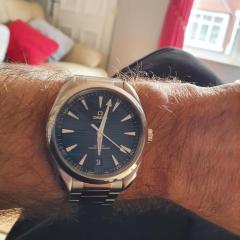Oils to start my kit with ....advice appreciated
-
Recently Browsing
- No registered users viewing this page.
-
Topics
-
Posts
-
Interesting! I just got a JLC Memovox 3151, calibre P489/1. The amplitude drops by 70° from horizontal to vertical. Good to know that this isn't too unusual. Btw, if anyone is ever searching: the lift angle on my P489/1 is 60° - as calibrated through visual (slow motion) inspection of the balance swing. This differs from the 40° lift angle found on various lists on the Internet. Makes a huge difference, obviously, in the timegrapher amplitude readings. Cheers







.thumb.jpg.cb17a66989f1e796fd4217db2e9ca9df.jpg)
Recommended Posts
Join the conversation
You can post now and register later. If you have an account, sign in now to post with your account.
Note: Your post will require moderator approval before it will be visible.